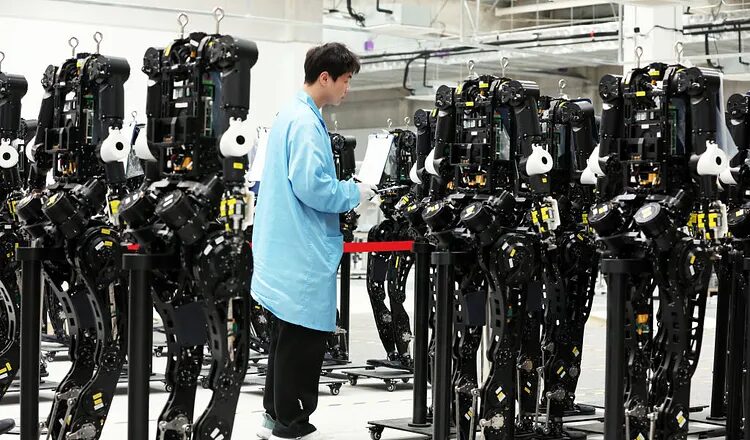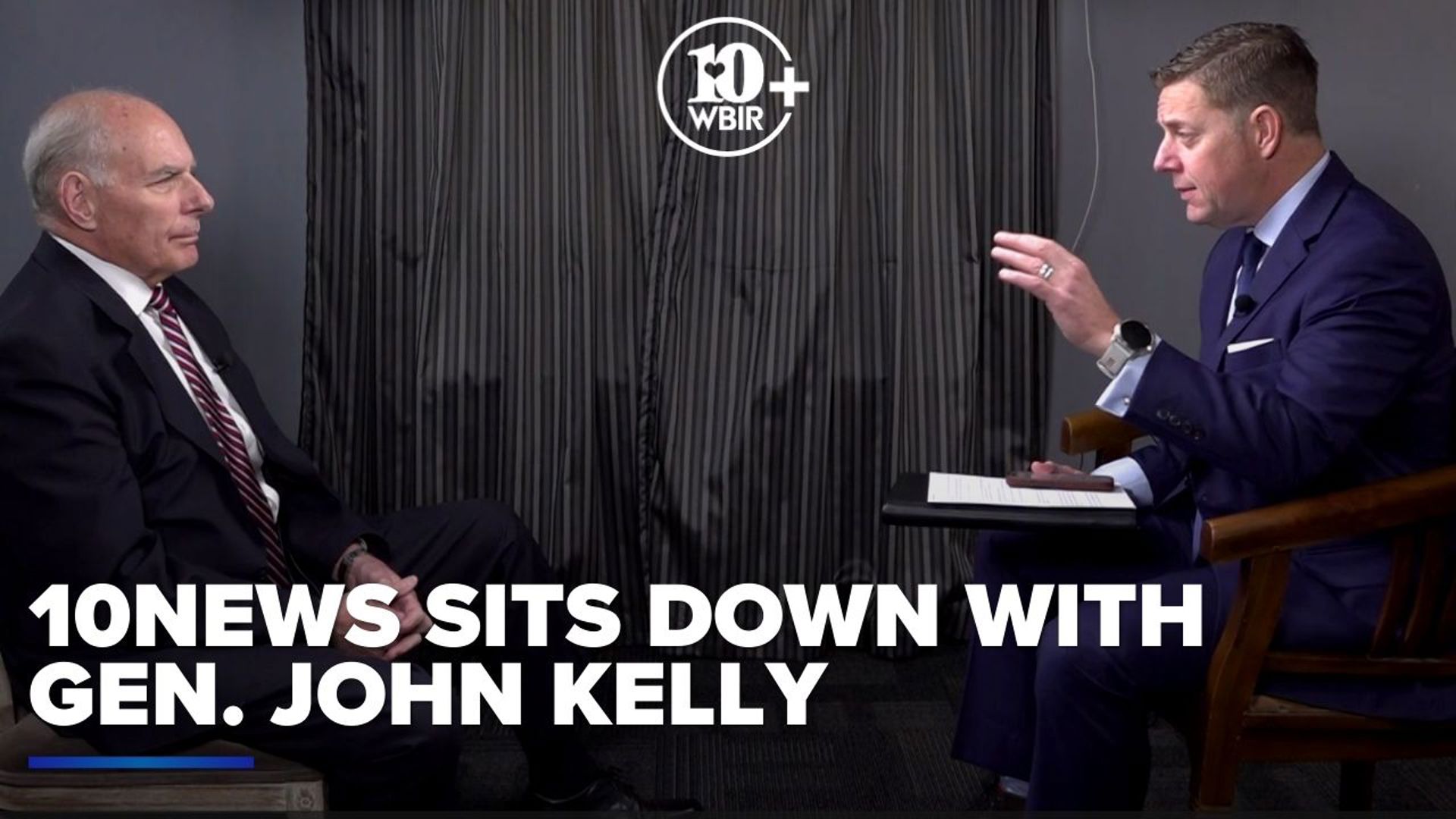
Patrick McGee: China’s Robots vs. America’s Chatbots
In his latest article for The Free Press, WWSG exclusive thought leader Patrick McGee argues that the global AI competition isn’t just about building the…
Thought Leader: Patrick McGee

CNN has been wrapped up in a wild assortment of headlines lately — the WarnerMedia-Discovery spinoff merger! The Cuomo scandal! Streaming service? Cicadas! — but the company’s most important storyline remains pretty much the same: its primary cable-oriented business model continues to be on a secular decline, and now that the Trump bump is over, there’s not much to paper over that fact.
Given that existential trend, it’s worth paying some close attention to what the organization is doing by way of experimenting with new content forms and business models beyond its core cable operation. I’m particularly interested, of course, in CNN’s growing adventures in podcasting, which popped up with unexpected prominence in the earlier days of the pandemic, when its contribution to the cohort of pop-up pandemic pods, Coronavirus: Fact vs. Fiction, rocketed up the podcast charts and stayed there for an extended stretch of months.
Short and succinct, Coronavirus: Fact vs. Fiction took a relatively simple approach to covering a chaotic time: build a show around the subject matter expert, in this case Dr. Sanjay Gupta, and have him run a short ten-minute-or-so episode every day unpacking a different thread of the rapidly evolving pandemic. The end product was notably comforting in its reliable presence, and it developed a considerable following as a result.
“It was, honestly, a podcast we hadn’t anticipated,” said Courtney Coupe, CNN’s SVP of Digital Productions, when we connected in late April to discuss where the company’s podcasting efforts go from here. As Coupe recalls, the show came together very quickly over the course of a weekend. At that moment, the company’s podcast team was still being assembled, with its executive producer, Megan Marcus, having just been hired a few months prior.
The digital team had also just secured a firm commitment from management that CNN was formally getting into the on-demand audio business. Not that there hadn’t been any prior activity, of course. The company had already published a number of podcasts for years, mostly a mix of interview shows, like Brian Stelter’s Reliable Sources podcast, and cross-media repackages of its television content. According to Coupe, the shift that’s happening is one of intentionality, describing how those previous efforts were mostly individual teams throughout the organization launching their own shows and side projects without a unifying strategy. The focus now is to build new shows on a framework that ties everything together.
A good example of this emerging integrated approach can be found with 5 Things, which started out as a popular newsletter product that CNN has since adapted for podcasting and smart speakers. (It was also converted into a television segment.) You can discern a replication of Coronavirus: Fact vs. Fiction’s merits in terms of its structure: The 5 Things podcast is a bite-sized daily audio product that delivers the five key headlines of the day, perfect for a quick podcatcher download or a response through an Alexa query. That adaptation effort seems to be highly successful. According to Digiday, the 5 Things podcast, which drops morning and evening editions, accounts for 43% of CNN Audio’s total podcast downloads, and there appear to be plans for the company to even roll out international editions of the product. (5 Things is additionally available in Spanish.)
The company is also said to be hiring a dedicated team of 10 people to support the effort. “We’re really focused on the 5 Things podcast and building out another team dedicated to that and additional short-form content,” Coupe told me. “If you think about how audiences relate to CNN, it’s almost Pavlovian. When news breaks, they turn on the television. We want to create that with other platforms.”
Though CNN Audio’s portfolio contains a few other standard news and politics shows, the two aforementioned daily short-form podcasts, along with the Pavlovian orientation they represent, offer the best lens to read the current state of CNN Audio’s audience metrics. The division’s podcast downloads as a whole are up by a whopping 91% since 2019, driven in large part by the dramatic increase in publishing volume as facilitated by Coronavirus: Fact vs. Fiction and 5 Things.
Having established that foundation of listenership, the company is now working to press harder into the medium. After 14 months and over 300 episodes, Coronavirus: Fact vs Fiction — still said to be CNN’s best-performing podcast in terms of downloads — was converted into a new show called Chasing Life in early May, which retains the feed (along with its subscribers) and its primary host. The switch is thematically in keeping with the shifting coronavirus picture and gives Dr. Gupta the opportunity to further his coverage through another lens: by exploring how people can readjust to life after the pandemic with a specific focus on the science behind health, happiness, and fulfillment. Chasing Life does involve a structural shift, however, as the show sheds its predecessor’s daily publishing schedule for a weekly one.
Elsewhere, the CNN Audio team has also started pressing into more evergreen content. Its first release in this area was Behind the Desk, which served as a companion podcast to the CNN Original documentary series The Story of Late Night. For what it’s worth, companion podcasts often strike me as a fairly unexciting frontier of content strategy, but I do want to take a beat to point out that there’s a tremendous amount of potential around CNN and audio documentaries more generally. Personally speaking, I’ve been plugged out of CNN’s live news programming since the elections — like many other people, I reckon — but I continue to engage through its various documentary and docuseries projects, which I’ve always found to be CNN at its most interesting.
The channel was, of course, the home of Anthony Bourdain: Parts Unknown, and it continues to produce a suite of really high-quality nonfiction television programs — including W. Kamau Bell’s United Shades of America, the various decades-oriented documentary series (The Eighties, The Nineties, etc.), hunky Stanley Tucci running around Italy gloriously stuffing his face — that don’t feel as commoditized and anonymous as they would, say, if they were produced and distributed by Netflix. Point being: I think there’s considerable room here for CNN Films and Original Series, the divisions that oversee these docuseries, to do some really interesting stuff with CNN Audio, and when I asked Coupe if there’s any deeper collaboration going on, she tells me that the two teams are communicating, and that they’re finding the best places to work together.
A quick word on revenue, because this is a trade newsletter. At this writing, the audio division is principally monetized through advertising. The Digiday writeup notes that this mostly takes the form of custom ads that CNN produces for its audio advertisers, though they are apparently running limited tests around programmatic audio advertising. But there are also some experiments on this front. Most notably, the division has an upcoming show with Don Lemon and Chris Cuomo called The Handoff that appears to be exclusive to the “CNN Channel” that will be built using the Apple Podcasts Subscription product — that is, whenever Apple finally rolls that out. We’ll see what comes of that.
I’m intrigued by CNN Audio and am genuinely curious to see if it meaningfully contributes to the reshaping of CNN’s prospects over the long term. For now, though, there’s still fundamental work to be done, as the company endeavors to broaden out its brand from just being thought about as a cable news company with some digital trimmings to something that’s quite more than that. “Audiences don’t necessarily know that CNN is in the audio game just yet,” said Coupe. “So what we’re aiming for is to be top of mind and to be one of the biggest brands in the audio space the same way we are in television and in digital. That’s what our goal is right now.”
Patrick McGee: China’s Robots vs. America’s Chatbots
In his latest article for The Free Press, WWSG exclusive thought leader Patrick McGee argues that the global AI competition isn’t just about building the…
Thought Leader: Patrick McGee
John Kelly: The Impact of Veterans
10News Anchor John Becker sits down with Gen. John F. Kelly to chat about the impact of veterans and how they work to serve their…
Thought Leader: John Kelly
Erika Ayers Badan: How Great Teams Actually Work
On this episode of Unsolicited Advice, we talk about what actually makes teams work. How clarity beats charisma. Why initiative matters more than experience. Why…
Thought Leader: Erika Ayers Badan

